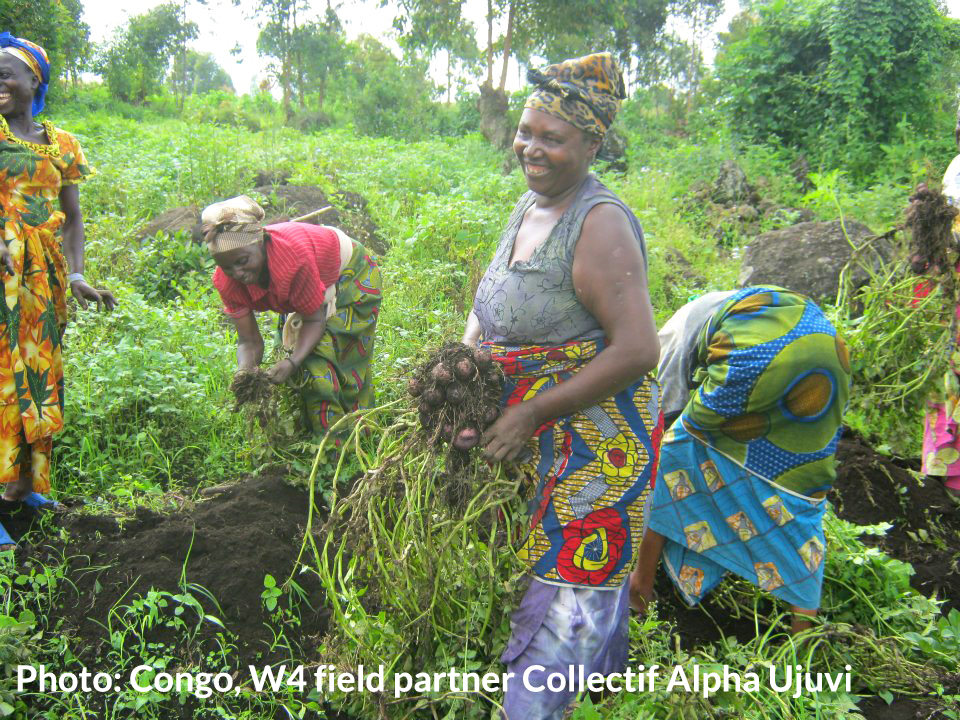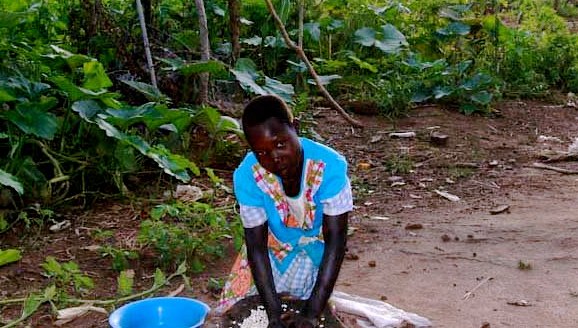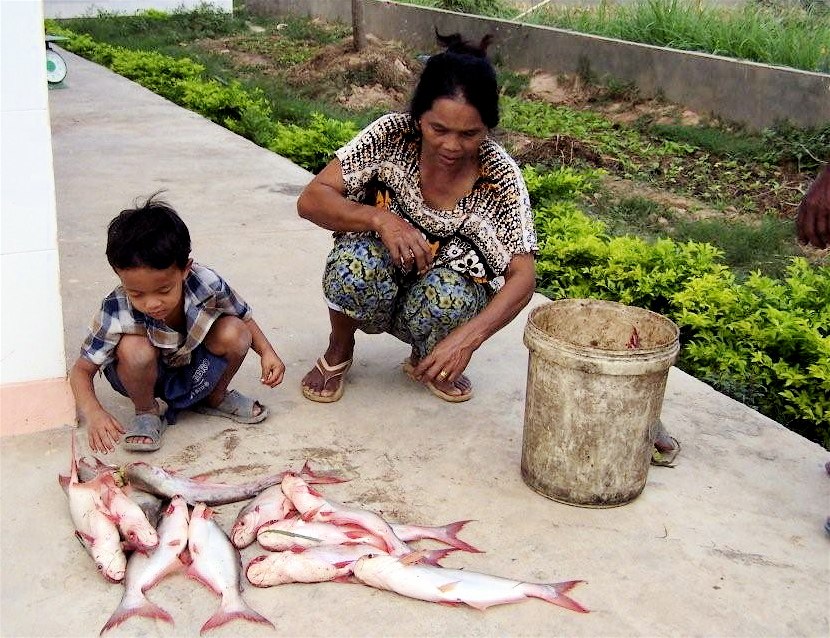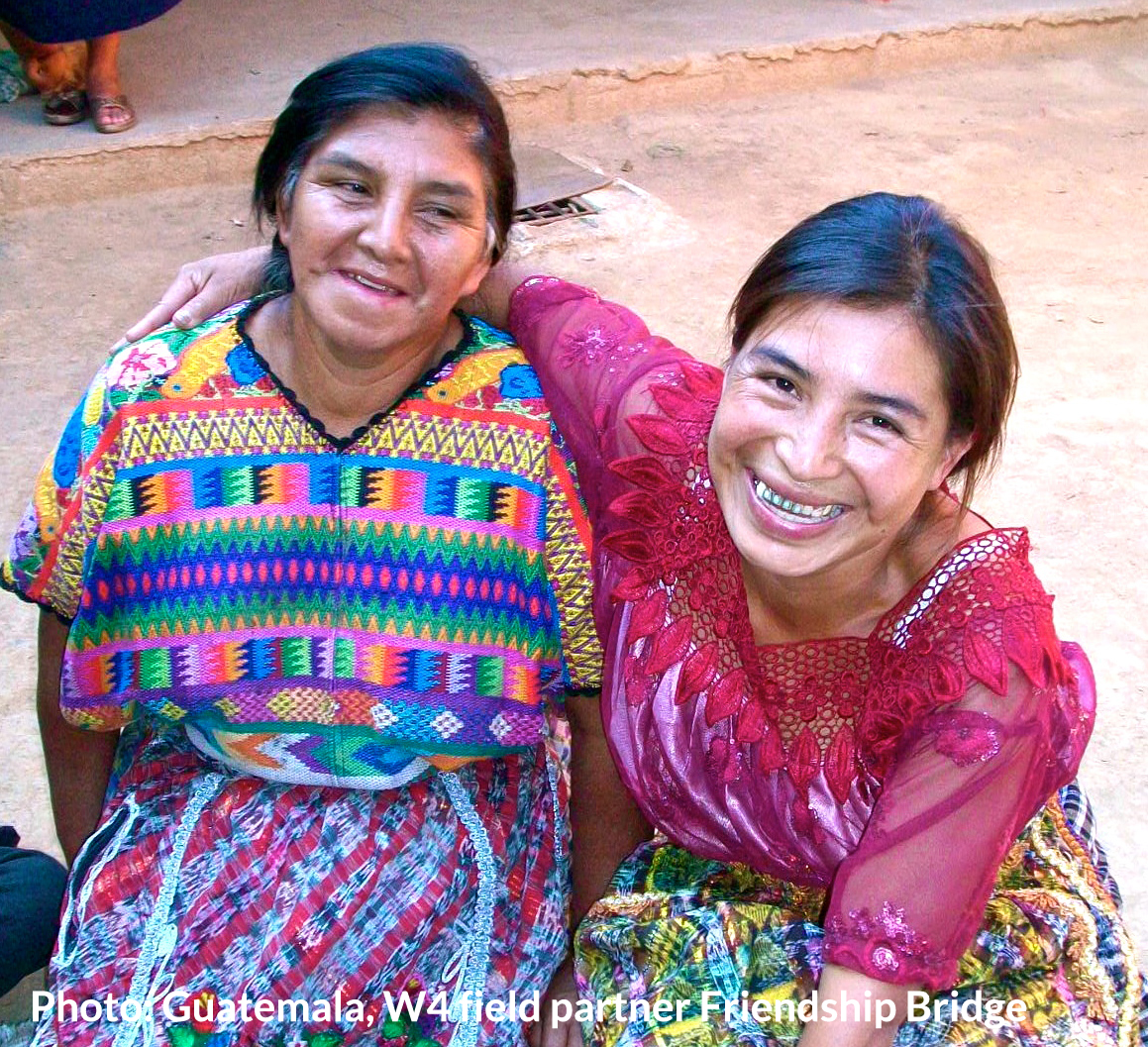 Ponder this: more than 100 million people could be lifted out of poverty if rural women had the same access to productive resources as men.
Ponder this: more than 100 million people could be lifted out of poverty if rural women had the same access to productive resources as men.
This is only one of the potential benefits of investing in rural women highlighted by U.N. Secretary-General Ban Ki-moon in his address on International Day of Rural Women, 2011, as he called on the international community to accelerate gender equality and the empowerment of rural women.
The empowerment of rural women and the pivotal role they play in poverty and hunger eradication are the focus of this year’s International Women’s Day and a priority theme of the 56th session of the U.N. Commission on the Status of Women currently taking place in New York. This is crucial, welcome news!
It is not only an important occasion to salute rural women across the world—who make up a quarter of the global population and are daily unsung heroes—but it also offers a critical window of opportunity to push the empowerment of rural women up the global political agenda.
Women are Heroes: gender inequality and the poverty equation.
 Women play a huge role in rural economies. They account for a great proportion of the agricultural labor force (up to 70 percent in some countries; 43 percent worldwide) and produce the majority of food grown, particularly in subsistence farming.
Women play a huge role in rural economies. They account for a great proportion of the agricultural labor force (up to 70 percent in some countries; 43 percent worldwide) and produce the majority of food grown, particularly in subsistence farming.
Yet, rural women make up the majority of the 1.4 billion poorest people in the world and it is estimated that 60 percent of chronically hungry people are girls and women. In other words, countless rural girls and women struggle daily to survive and meet their basic needs. This is a tragic and unacceptable situation—investing to improve rural girls’ and women’s lives and livelihoods is, needless to say, a moral imperative.
The good news is that the last few years have seen a growing recognition that gender inequality lies at the root of rural poverty and that empowering rural women is smart economics and can reverse the poverty equation. As the 2011 Rural Poverty Report of the International Fund for Agricultural Development succinctly put it: “Rural poverty is deeply rooted in the imbalance between what women do and what they have.”
Solutions, solutions: investing in rural women is the solution!
 Vast research, numerous studies and concrete initiatives at the international, national and local levels are proving that investing in rural women can reverse the poverty equation and generate multiple wins that can help solve some of the world’s most challenging problems: poverty reduction, food security, environmental sustainability and global security. Astute companies are identifying the business opportunities inherent in investing in rural women and are investing in innovative public-private alliances to generate triple bottom lines.
Vast research, numerous studies and concrete initiatives at the international, national and local levels are proving that investing in rural women can reverse the poverty equation and generate multiple wins that can help solve some of the world’s most challenging problems: poverty reduction, food security, environmental sustainability and global security. Astute companies are identifying the business opportunities inherent in investing in rural women and are investing in innovative public-private alliances to generate triple bottom lines.
Take, for example, the mWomen Initiative, a partnership between the worldwide mobile industry and the development community that aims to halve the mobile phone gender gap by 2014. It is catalyzing the transformative power of mobile technology that provides rural women with all manner of life-enhancing, even life-saving, services and information (agriculture, business, health, education services, mobile banking and financial services).
The Bill & Melinda Gates Foundation, commissioned a guide in 2010 for international food companies, illustrating the multiple dividends of increasing women’s participation in smallholder sourcing programmes, such as improved crop productivity and quality and improved access to premium markets. This is being borne out in multi-million dollar public-private partnerships, such as Project Nurture, an alliance between the Gates Foundation, Coca-Cola, and Technoserve in East Africa which, through investments in infrastructure and the provision of training for local farmers, many of them women, are generating financial and social dividends.
Grameen Shakti, in Bangladesh, is a showcase example of the triple bottom line business that is empowering women. The model combines microfinance, solar technology, clean cookstove technology (inefficient cookstoves cause over 2 million deaths worldwide, mainly among women and children) and the training of rural women as solar home system engineers. It has generated multiple, remarkable wins: improving rural women’s access to clean, renewable energy, improving women’s livelihoods and health, promoting gender equality, and helping to reduce greenhouse gases and deforestation.
Because she’s worth it: seizing the moment of opportunity
 There are countless, inspiring examples of small- and large-scale development initiatives and business that are unleashing the productivity of rural women, to the benefit of entire communities. In spite of this, rural women have, for too long, been the missing link in development policies and practice. UN Women stresses: “rural women’s rights and priorities remain insufficiently addressed in legal frameworks, national and local development policies and investment strategies at all levels.”
There are countless, inspiring examples of small- and large-scale development initiatives and business that are unleashing the productivity of rural women, to the benefit of entire communities. In spite of this, rural women have, for too long, been the missing link in development policies and practice. UN Women stresses: “rural women’s rights and priorities remain insufficiently addressed in legal frameworks, national and local development policies and investment strategies at all levels.”
With the upcoming Rio+20 U.N. conference on sustainable development in June this year, we have a moment of opportunity to ensure that rural women are an international development priority and that policies and measures translate into real, on-the-ground progress for rural women.
As citizens and consumers in our information age of digitalized, democratized philanthropy, we can, with one click, be part of the solution—by adding our voice to the agenda for the Rio+20 conference to ensure that rural women are heard at the Rio+20 conference and that they are equal partners in sustainable development. Indeed, we can be part of myriad, concrete solutions to empower rural women: whether it’s by making an online $25 loan for a woman to invest in capital equipment, or choosing to purchase our chocolate fair trade from a company that is proactively involving women farmers in its supply base, using our voice to eliminate gender discrimination in law and practice, or donating $5 to pay for a safe birth kit that can save the lives of mothers and babies.
Let’s seize this opportunity and act together now: women are the missing, strong link to sustainable development. As UN Women Executive Director Michelle Bachelet says: “prioritizing women is not a choice; it is a necessity”. Rural women cannot wait, the planet cannot wait.
Originally published on Reuters TrustLaw, International Women’s Day 2012.
© Women’s WorldWide Web 2012













